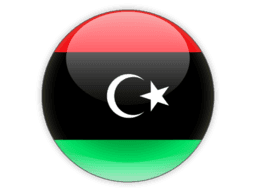
Regions of Libya
Explore 22 regions
Cities of Libya
Discover 50 cities across 20 regions
Al Buţnān(1)
Al Jabal al Akhḑar(2)
Al Jafārah(5)
Al Jufrah(1)
Al Kufrah(2)
An Nuqāţ al Khams(4)
Az Zāwiyah(5)
Murzuq District(1)
Nālūt(1)
Sabha District(2)
Wādī al Ḩayāt(2)
Libya is a country located in North Africa, bordered by the Mediterranean Sea to the north, Egypt to the east, Sudan to the southeast, Chad and Niger to the south, and Algeria and Tunisia to the west. It is the fourth largest country in Africa and has a population of over 6 million people.
Libya has a rich history dating back to ancient times, with evidence of human habitation dating back over 10,000 years. The country was ruled by various empires and kingdoms throughout its history, including the Phoenicians, Greeks, Romans, and Ottoman Turks. In 1951, Libya gained independence from Italy and became a monarchy, which was overthrown in a military coup in 1969, leading to the rise of Colonel Muammar Gaddafi as the country's leader.
In recent years, Libya has been plagued by political instability and conflict. In 2011, a popular uprising against Gaddafi led to his overthrow and eventual death, but the country has since been divided between rival governments and militias. The ongoing civil war has resulted in significant violence and displacement, with many Libyans fleeing to neighboring countries as refugees.
Despite these challenges, Libya has a diverse economy that includes oil and gas production, agriculture, and tourism. The country's historic sites and natural beauty, including the Sahara desert and the Mediterranean coast, attract visitors from around the world. However, ongoing conflict and security concerns have made travel to Libya difficult and unsafe for most foreigners.
Telephone Code
218
Local Emergency Phone
193, 1515
Vaccinations
An International Certificate of Vaccination for yellow fever is required for travelers arriving from countries with a risk of yellow fever transmission and for travelers having transited through the airport of a country with risk of yellow fever transmission. See WHO recommendations.
Climate
Mediterranean along coast; dry, extreme desert interior
Currency (Code)
Libyan dinars (LYD)
Electricity/Voltage/Plug Type(s)
230 V / 50 Hz / plug types(s): C, L
Major Languages
Arabic, Italian, English, Berber
Major Religions
Muslim (virtually all Sunni) 96.6%, Christian 2.7%, Buddhist 0.3%
Potable Water
Opt for bottled water
International Driving Permit
Suggested
Road Driving Side
Right
Tourist Destinations
Tadrart Acacus; Cyrene; Leptis Magna; Old Town Ghadames; Sabratha; Tripoli (includes Arch of Marcus Aurelius, Red Castle Museum)
Major Sports
Soccer
Cultural Practices
When invited to a home, it is common to be offered coffee or tea, and it is polite to accept this offer.
Tipping Guidelines
A service charge of 10-20% is customary on restaurant and hotel bills.
Souvenirs
Ghadames slippers, blended oils/perfumes, stamps, gold jewelry inlaid with precious stones, leather goods, hand-loomed rugs, pottery, stringed musical instruments, copperware, palm leaf baskets
Traditional Cuisine
Cuscus Bil-Bosla — couscous cooked with lamb, chickpeas, potatoes, and tomatoes
Geography
Area
total: 1,759,540 sq km
land: 1,759,540 sq km
water: 0 sq km
Climate
Mediterranean along coast; dry, extreme desert interior
Natural resources
petroleum, natural gas, gypsum
People and Society
Population
7,252,573 (2023 est.)
Ethnic groups
Berber and Arab 97%, other 3% (includes Egyptian, Greek, Indian, Italian, Maltese, Pakistani, Tunisian, and Turkish)
Languages
Arabic (official), Italian, English (all widely understood in the major cities); Berber (Nafusi, Ghadamis, Suknah, Awjilah, Tamasheq)
Religions
Muslim (official; virtually all Sunni) 96.6%, Christian 2.7%, Buddhist <1%, Hindu <1%, Jewish <1%, folk religion <1%, other <1%, unafilliated <1% (2020 est.)
Population growth rate
1.54% (2023 est.)
Government
Government type
in transition
Capital
name: Tripoli (Tarabulus)
Economy
Economic overview
upper middle-income, fossil fuel-based North African economy; 31% economic contraction due to COVID-19 and 2020 oil blockade; reduced government spending; central bank had to devalue currency; public wages are over 60% of expenditures
Real GDP (purchasing power parity)
$147.942 billion (2021 est.)
Real GDP per capita
$22,000 (2021 est.)
Agricultural products
potatoes, watermelons, tomatoes, onions, dates, milk, olives, wheat, poultry, vegetables
Industries
petroleum, petrochemicals, aluminum, iron and steel, food processing, textiles, handicrafts, cement
Exports
$9.537 billion (2020 est.)
Exports - partners
Italy 18%, China 16%, Germany 15%, Spain 15%, United Arab Emirates 6%, France 6%, United States 5% (2019)
Exports - commodities
crude petroleum, natural gas, gold, refined petroleum, scrap iron (2019)
Imports
$14.334 billion (2020 est.)
Imports - partners
China 16%, Turkey 14%, Italy 9%, United Arab Emirates 9%, Egypt 5% (2019)
Imports - commodities
refined petroleum, cars, broadcasting equipment, cigarettes, jewelry (2019)
International Airports in Libya
Discover 6 major airports serving Libya
Mark Libya as Visited
Add Libya to your personal travel map and track your journey around the world. Share your adventures and see your progress grow!